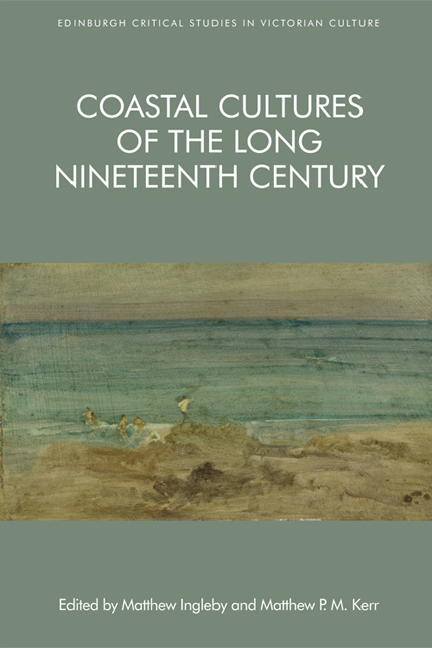5 - Encounters with Capitalism on R. L. Stevenson’s Early Coasts
Published online by Cambridge University Press: 01 May 2021
Summary
In the summer of 1868, as part of his training to join the family trade of lighthouse engineering, an eighteen-year-old Robert Louis Stevenson was sent north from Edinburgh to the coastal towns of Anstruther and Wick, to take part in the works being carried out there. As his letters home show, he did not much enjoy the experience. Nevertheless, six years later, as a law student in Edinburgh trying to enter the world of letters, he reworked his time in northerly Wick for an essay, ‘On the Enjoyment of Unpleasant Places’, published in The Portfolio magazine; and then later still, in 1888 – and by this time an established author – he wrote another positive account in the essay ‘The Education of an Engineer’, published in Scribner's Magazine. Given the difference in readership and literary method between letters and essays, it might be no surprise that the accounts of the same coast differ in each. However, tracking exactly how the essays recast the unpalatable shores of the letters allows us not only to register the pressures which dictated this recasting – evident sometimes only by their displacement and transfiguration – but to observe how the coast interacts with Stevenson's literary method and self-fashioning, with its emphasis on a visual aesthetic and an untroubled romantic freedom. This also allows for a recognition of how Stevenson's approach to the coast in his essays is bound up with the culture of nineteenth-century tourism. A reading of the long story ‘The Merry Men’ (1882), published when Stevenson was still trying to establish himself as an author, will then show how these forces manifest differently again in fictional narrative. As in letters and essays, the coast becomes a site of encounter with various aspects of late Victorian capitalism. However, as with more famous works such as Treasure Island (1883) and Kidnapped (1886), in ‘The Merry Men’ Stevenson attempts a re-imagination of the romance that can resist the imperatives driving capitalism, and which solder it to the mass market as a symbiotic form.
Given the family trade, you might say that Stevenson was born to the coast – though given the places in which he ended up residing, from France to California to Samoa, you might just as easily ask, which coast? Not, it seems, those encountered on his 1868 visits in Scotland.
- Type
- Chapter
- Information
- Coastal Cultures of the Long Nineteenth Century , pp. 98 - 115Publisher: Edinburgh University PressPrint publication year: 2018



